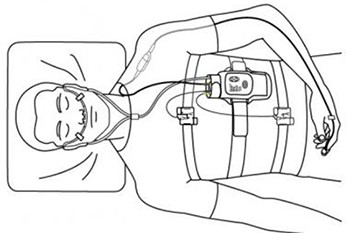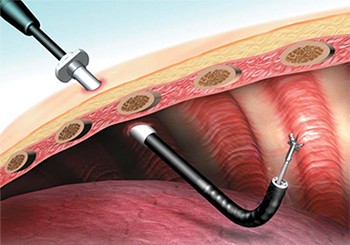Immunizations
Immunization (vaccination) is a way to trigger your immune system and prevent serious, life-threatening diseases. Immunization exposes you to a very small, very safe amount of the most important diseases you are likely to encounter at some point in your life.
This mild exposure helps your immune system recognize and attack the disease efficiently. If you are exposed to the full-blown disease later in life, you will either not become infected or have a much less serious infection. This is a natural way to deal with infectious diseases.
Immunizations – General Information
Most vaccine-preventable diseases are caused by germs that are called “viruses” or “bacteria.” Vaccines to help prevent these diseases generally contain weakened or killed viruses or bacteria specific to the disease. Vaccines help your body recognize and fight these germs and protect you each time you come in contact with someone who is sick with any of these diseases.
There are a series of steps that your body goes through in fighting these diseases :
- First – A vaccine is given by a shot.
- Next – Over the next few weeks the body makes antibodies and memory cells against the weakened or dead germs in the vaccine.
- Then – The antibodies can fight the real disease germs if the person is exposed to the germs and they invade the body. The antibodies will help destroy the germs and the person will not become ill.
- Finally – Antibodies and memory cells stay on guard in the body for years after the vaccination to safeguard it from the real disease germs.
- Most vaccines are given to babies and young children, but some are needed throughout your lifetime to make sure you stay protected. This protection is called immunity. Vaccines are an important and safe way to keep you healthy.
Influenza
The flu is a contagious respiratory illness caused by influenza viruses. It can cause mild to severe illness and at times can lead to death. The best way to prevent this illness is by getting a flu vaccination each fall.
Every year in the United States, on average: 5% to 20% of the population gets the flu; More than 200,000 people are hospitalized from flu complications, and; about 36,000 people die from flu.
How do Vaccines Work
Immunization (vaccination) is a way to trigger your immune system and prevent serious, life-threatening diseases. Immunization exposes you to a very small, very safe amount of the most important diseases you are likely to encounter at some point in your life.
This mild exposure helps your immune system recognize and attack the disease efficiently. If you are exposed to the full-blown disease later in life, you will either not become infected or have a much less serious infection. This is a natural way to deal with infectious diseases.
Who Should Get the Flu Shot?
In general, anyone who wants to reduce their chances of getting the flu can get vaccinated. However, certain people should get vaccinated each year. They are either people who are at high risk of having serious flu complications or people who live with or care for those at high risk for serious complications. People who should get vaccinated each year are.
People who should get vaccinated each year are:
- People at high risk for complications from the flu.
- People 65 years and older.
- People who live in nursing homes and other long-term care facilities that house those with long-term illnesses.
- Adults and children 6 months and older with chronic heart or lung conditions, including asthma.
- Adults and children 6 months and older who needed regular medical care or were in a hospital during the previous year because of a metabolic disease (like diabetes), chronic kidney disease, or weakened immune system (including immune system problems caused by medicines or by infection with human immunodeficiency virus [HIV/AIDS]).
- Children 6 months to 18 years of age who are on long-term aspirin therapy. (Children given aspirin while they have influenza are at risk of Reye syndrome.);
Women who will be pregnant during the influenza season. - All children 6 to 23 months of age.
- People with any condition that can compromise respiratory function or the handling of respiratory secretions (that is, a condition that makes it hard to breathe or swallow, such as brain injury or disease, spinal cord injuries, seizure disorders, or other nerve or muscle disorders.)
- People 50 to 64 years of age. Because nearly one-third of people 50 to 64 years of age in the United States have one or more medical conditions that place them at increased risk for serious flu complications, vaccination is recommended for all persons aged 50 to 64.
- People who can transmit flu to others at high risk for complications. Any person in close contact with someone in a high-risk group (see above) should get vaccinated. This includes all health-care workers, household contacts and out-of-home caregivers of children 6 to 23 months of age, and close contacts of people 65 years and older.
Immunizations – Pneumonia
What is Pneumococcal Pneumonia?
Pneumococcal disease is a serious disease that cause much sickness and death. It’s a type of bacteria called Streptococcus pneumonia and when these bacteria invade the lungs, they cause the most common kind of bacterial pneumonia and can then invade the bloodstream (bacteremia) and/or the tissues and fluids surrounding the brain and spinal cord (meningitis).
The vaccine prevents 23 types of “strep” infection – including pneumonia, bacteremia and meningitis that can cause death or serious health problems, particularly in older adults.
What Are the Signs and Symptoms?
Pneumococcal pneumonia (begins with high fever, cough, and stabbing chest pains), bacteremia, and meningitis.
Complications
This infection kills thousands of people in the United States each year, most of them under two years of age or over 65 years. Over half a million cases of pneumonia and 60,000 deaths were reported in 2002.
How do you get it?
Pneumococcus is in many people’s noses and throats. Why it suddenly invades the body and causes disease is unknown.
How to prevent it?
Pneumococcal vaccine is very good at preventing severe disease, hospitalization, and death. However it is not guaranteed to prevent all symptoms in all people.
As an adult, do I need it?
You should get the pneumococcal vaccine if:
- You are 65 years old or older.
- You have a serious long-term health problem such as heart disease, sickle cell disease, alcoholism, leaks of cerebrospinal fluid, lung disease (not including asthma), diabetes, or liver cirrhosis.
- Your resistance to infection is lowered due to Hodgkin’s disease; multiple myeloma; cancer treatment with x-rays or drugs; treatment with long-term steroids; bone marrow or organ transplant; kidney failure; HIV/AIDS; lymphoma, leukemia, or other cancers; nephrotic syndrome; damaged spleen or no spleen.
- You are an Alaskan Native or from certain Native American populations.
How Do Vaccines Work
Immunization (vaccination) is a way to trigger your immune system and prevent serious, life-threatening diseases. Immunization exposes you to a very small, very safe amount of the most important diseases you are likely to encounter at some point in your life.
This mild exposure helps your immune system recognize and attack the disease efficiently. If you are exposed to the full-blown disease later in life, you will either not become infected or have a much less serious infection. This is a natural way to deal with infectious diseases.




